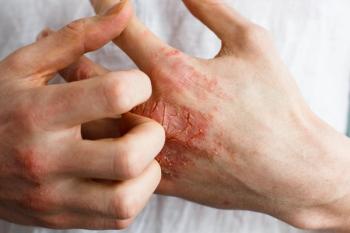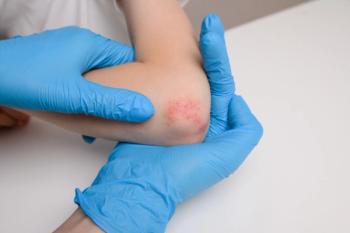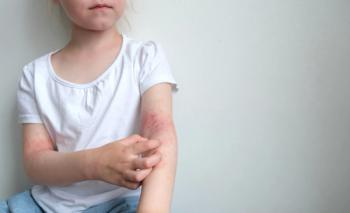
Exploring the Link Between Skin Self-Examination Performance and Melanoma Literacy
A survey found that only 24.6% of respondents have conducted a skin self-examination in the past 2 months.
A higher level of knowledge about melanoma risk is associated with an increased likelihood of performing preventative behaviors, according to research presented at the 2023 ASCO Annual Meeting.1
Investigators conducted a survey to explore the relationship between melanoma knowledge and the performance of skin self-examination. A total of 15,000 surveys were administered in 3 Western US states where there were high incidence rates of melanoma.
“Understanding the barriers to behaviors such as skin self-examination can aid in the development of interventions aimed at increasing the frequency of early detection and reducing melanoma-related deaths,” the authors wrote.
The study cohort included 2326 respondents from Oregon, Washington, and Utah. Survey responses were weighted to resemble the gender and age distributions of the US census, with rural areas oversampled to ensure sufficient representation.
Investigators found that characteristics—including demographics, baseline knowledge, and performance of skin self-examination—were similar across states. Compared with urban residents, those from rural areas had a higher frequency of having a personal history with melanoma. Only 21.2% of respondents demonstratedahigh level of knowledge about melanoma.
Nearly 63% of survey respondents reported having performed a skin self-examination at some point in their lives, though only 24.6% said they had conducted one in the past 2 months. The majority of respondents believed that skin self-examinations were effective at detecting skin cancer. However, only 38.3% and 7.3% reported being fairly or very confident, respectively, in performing these self-examinations.
Additionally, performing skin self-examinations was highly correlated with having more knowledge about melanoma, as well as having a personal history with the cancer and a higher self-efficacy.
“The results of the survey indicate that melanoma literacy among respondents in 3 high-risk Western states is limited,” the authors concluded. “This study provides a baseline assessment and serves as a foundation for the development of public health campaigns aimed at promoting prevention and early detection of this deadly cancer.”
Reference
1. Nelson J, Latour E, Detweiler-Bedell B, et al. Melanoma literacy and predictors for skin self-examination in three western U.S. states: A population-based survey. J Clin Oncol. 2023(suppl 16; abstr 10558). Doi:10.1200/JCO.2023.41.16_suppl.10558
Newsletter
Pharmacy practice is always changing. Stay ahead of the curve with the Drug Topics newsletter and get the latest drug information, industry trends, and patient care tips.























